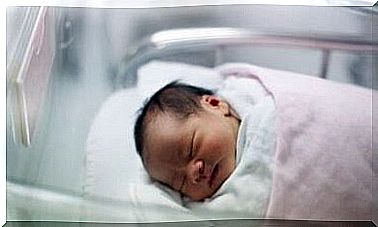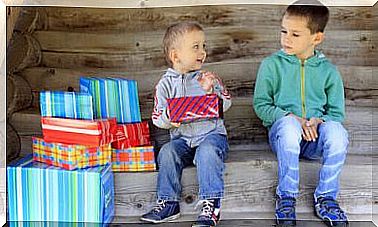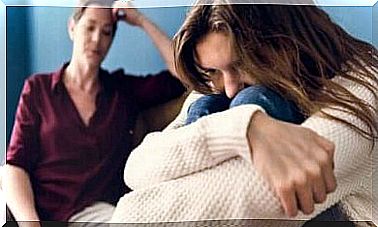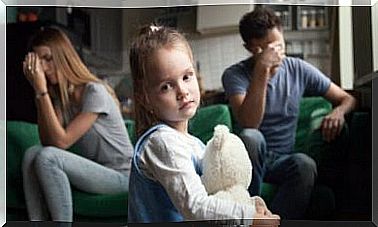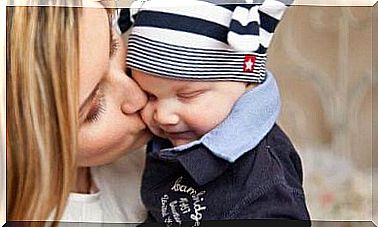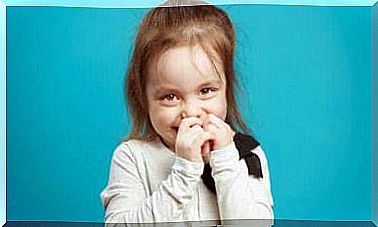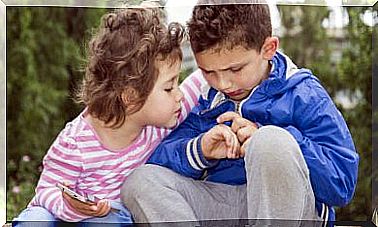Does Teething Affect Children’s Sleep?
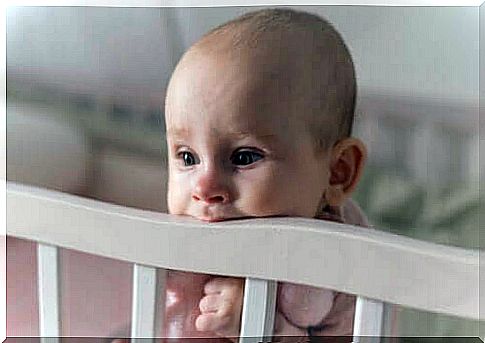
For some little ones, the appearance of baby teeth occurs without much discomfort. But for others, it’s a painful time, making babies irritable. But does teething affect how kids sleep? Today we look at the problem.
The eruption of baby teeth is a slow and progressive process that usually begins around 6 months of age and ends around 3 years of age. Therefore, parents must have the knowledge and tools to help their child through this stage with love and patience.
We will tell you how teething manifests itself and whether teething can affect the child’s rest. In addition, we share some tips to make this moment even more enjoyable.
Symptoms that your baby’s teeth are coming through
As we mentioned, teething usually starts around 6 months of age. However, each little one grows and develops at their own pace. For some it starts earlier and for others it takes a few months longer.
Before the tooth is visible in the mouth, there are some manifestations that parents may notice in their children that indicate that a tooth is about to erupt. These are the following:
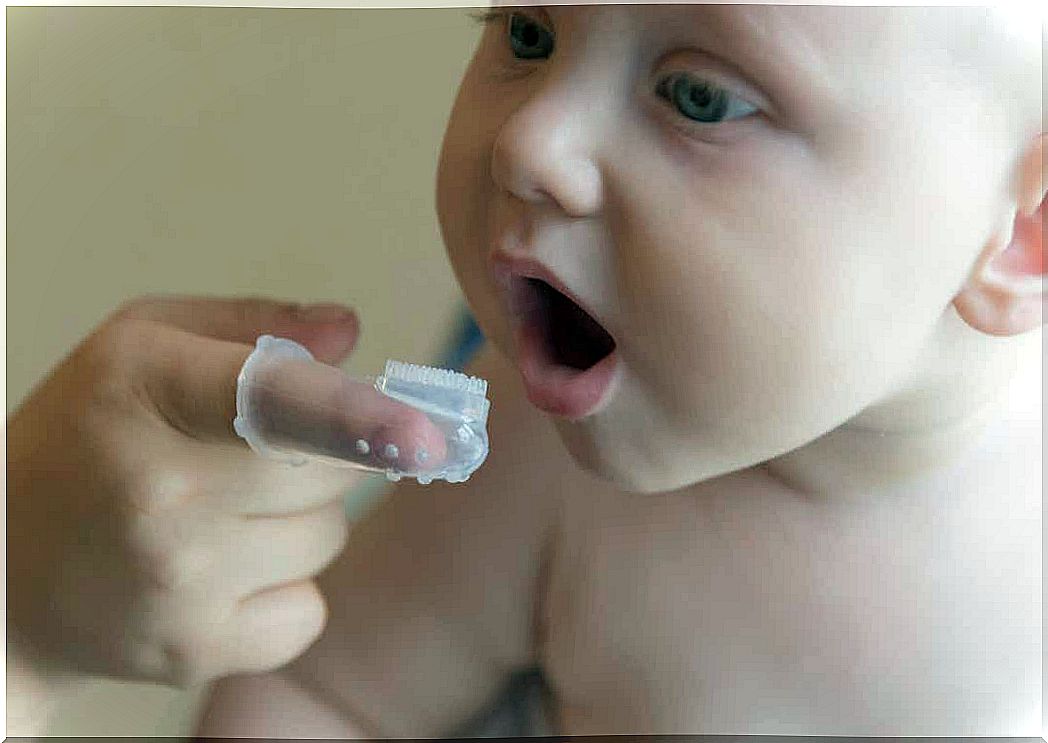
- Swelling of the gums or the appearance of a small whitish bump on the gums.
- A need to put anything in the mouth, bite and rub objects against the gums.
- Excessive drooling.
- Irritability, anxiety, and frequent crying for no apparent reason.
- Discomfort when feeding (it may be difficult to breastfeed on these days and the child may refuse to eat).
- Increased nighttime awakening.
Teething can also cause a slight rise in temperature. However, it does not cause fever or diarrhea. If the child shows these symptoms, you should not immediately attribute them to teething problems. Consult your pediatrician to find out its origin.
How does teething affect children’s sleep?
While there is no evidence that teething affects children’s sleep, it is a problem often associated with this stage. Many parents report that their little ones experience changes in sleep during teething.
For many children, the appearance of baby teeth causes discomfort, pain and tenderness in the mouth. So these symptoms can contribute to sleep problems.
In any case, the lack of sleep and the inability to sleep often irritates the little ones even more. So sometimes not falling asleep is actually due to fatigue and frustration at not being able to sleep.
So the cause of the little ones awakening may not be exactly due to the teething. Sometimes, at the same time as teething, other processes occur in children that can come together and prevent them from sleeping well. For example, the lack of schedules or a change of routines could be the cause of the problem.
Regardless of whether it is the teeth or some other cause, waking up at night and unable to sleep will upset the child with fatigue. Thus, maintaining a routine and helping the child fall back asleep is part of the care that parents should provide. Even if it is a bit more difficult at that time of night.
Tips to calm your baby
Below we will share some recommendations that can help your baby feel better when teething. We also give several tips that can be useful when teething or other factors affect your little one’s sleep:
- Teethers: To calm little ones’ need to bite, it is best to offer teethers that they can put in their mouths. They are available in different textures and consistencies. They can be placed in the refrigerator to keep them cold, providing additional relief.
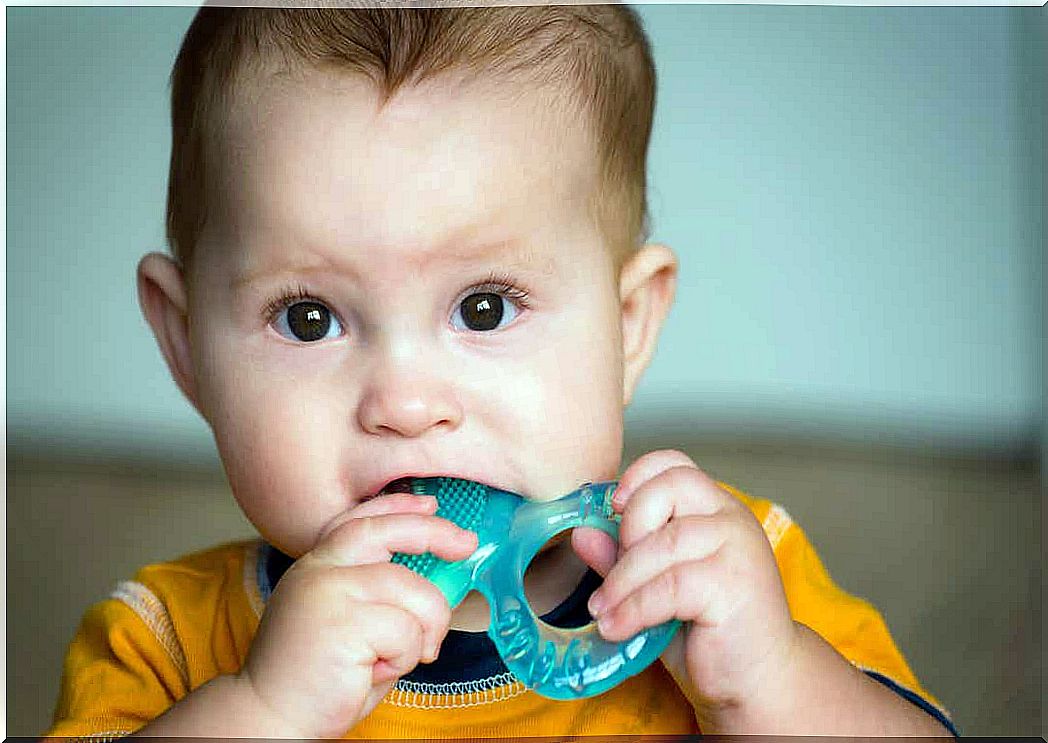
- Gum massages: The routine of cleaning the gums with gauze or a silicone thimble can be very pleasant for them at this point.
- Pacifier: If the child is used to using a pacifier, it may need a little more at this stage.
- Cold food: Cold temperatures help reduce inflammation in the area. They give a sense of relief. Therefore, offer small pieces of cold fruits or vegetables if they can already eat alone, or breast milk ice cream can be helpful.
- Maintain good habits: Every parent chooses the way their family sleeps. But if you’ve achieved certain ways of sleeping that work well for your baby, it’s best not to make any changes. For example, if your child sleeps alone in his crib, it is best to guide and help him go back to sleep in his own space, rather than moving him to your own bed.
- Medication: Medication is generally not necessary. Sometimes, if there is a lot of discomfort, your pediatrician may recommend the use of a pain reliever.
If Teething Is Affecting Your Child’s Sleep, Be Patient
There may be several long nights where your little one is crying and being fussy. This can be due to teething. It could also just be that your child needs to get used to a good sleep routine. Guiding your child with patience and love is the key to this process. This way, both you and your little one will get through these nighttime episodes in the best possible way.
